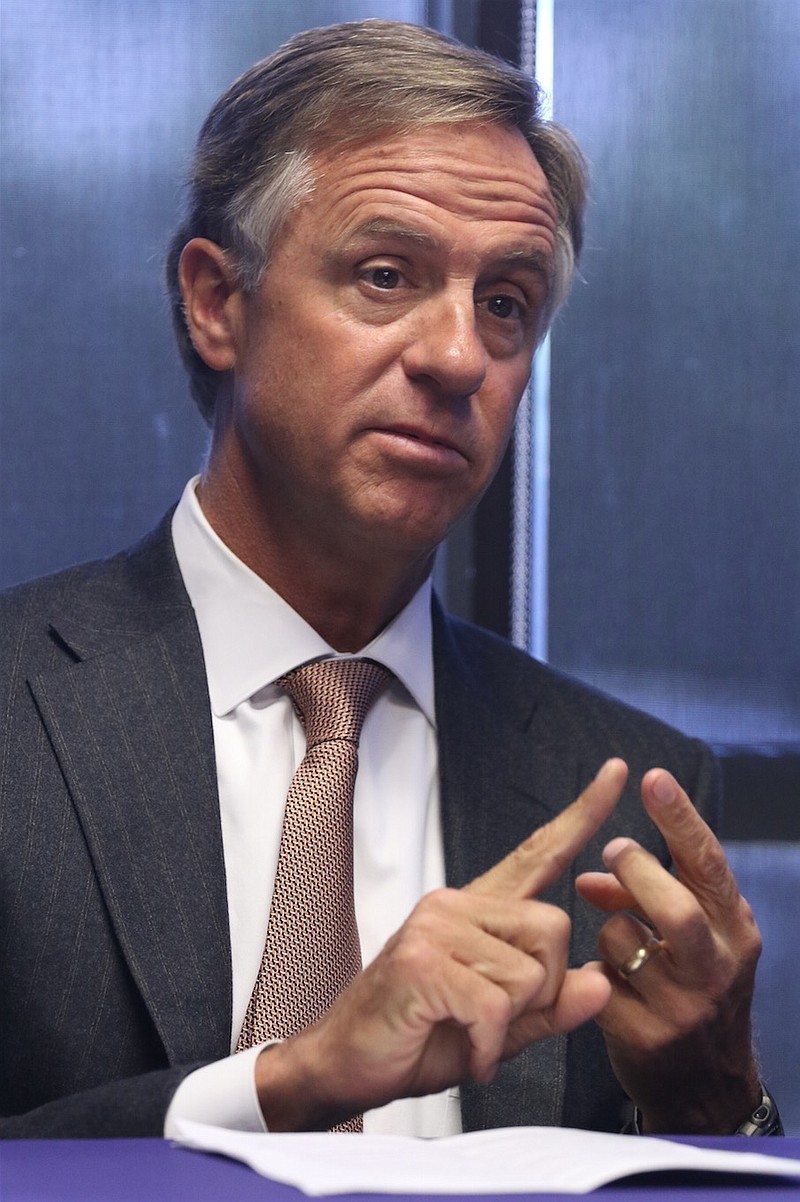NASHVILLE - New figures now project an estimated 280,000 low-income Tennesseans would initially qualify to enroll in Gov. Bill Haslam's proposed Insure Tennessee program, a 40 percent increase over original projections.
Administration officials released the revised figures today in a presentation to nearly four dozen state legislators who next week will be among those in a special session debating whether to give Haslam a green light to proceed with the two-year pilot project.
Meanwhile, a TennCare-commissioned actuarial study estimates the program's costs in the first six months beginning Jan. 1, 2016, would be $664.28 million. All costs during that period would be borne by the federal government under President Barack Obama's Affordable Care Act.
The federal law, also known as Obamacare, provides full funding through 2016, then gradually begins to scale back the federal share. Tennessee would pick up 10 percent of costs by 2020.
The first full year of Insure Tennessee's implementation - July 1, 2016 to June 30, 2017 - would result in $1.42 billion in expenditures to cover 293,800 people, according to the actuarial study.
Tennessee's share of that for the first six months of 2007 would be $35.56 million.
State-based hospitals have volunteered to pick up the state's share through an increase in the existing 4.52 percent assessment on most hospitals' net income.
In the first half of fiscal year 2018 - July 1, 2017 to Dec. 31, 2017 - the total cost to cover 307,600 people would be $766.64 million with the state share coming to $38.33 million.
Haslam said that at that point the program would end unless he believes it has been a successful in terms of its goals and is financially sustainable.
Casey Dungan, chief financial officer for TennCare, said Wednesday the new estimates of enrollees are based on projections from the Robert Wood Johnson Foundation and Kaiser Family Foundation, which provide in-depth information on health policy issues including Medicaid and Medicare.
State officials had previously cited figures of around 200,000 people, mostly adults, who would benefit from what Haslam calls his "market-driven" plan to use federal Medicaid dollars to extend health care insurance to people who currently can't afford it.
